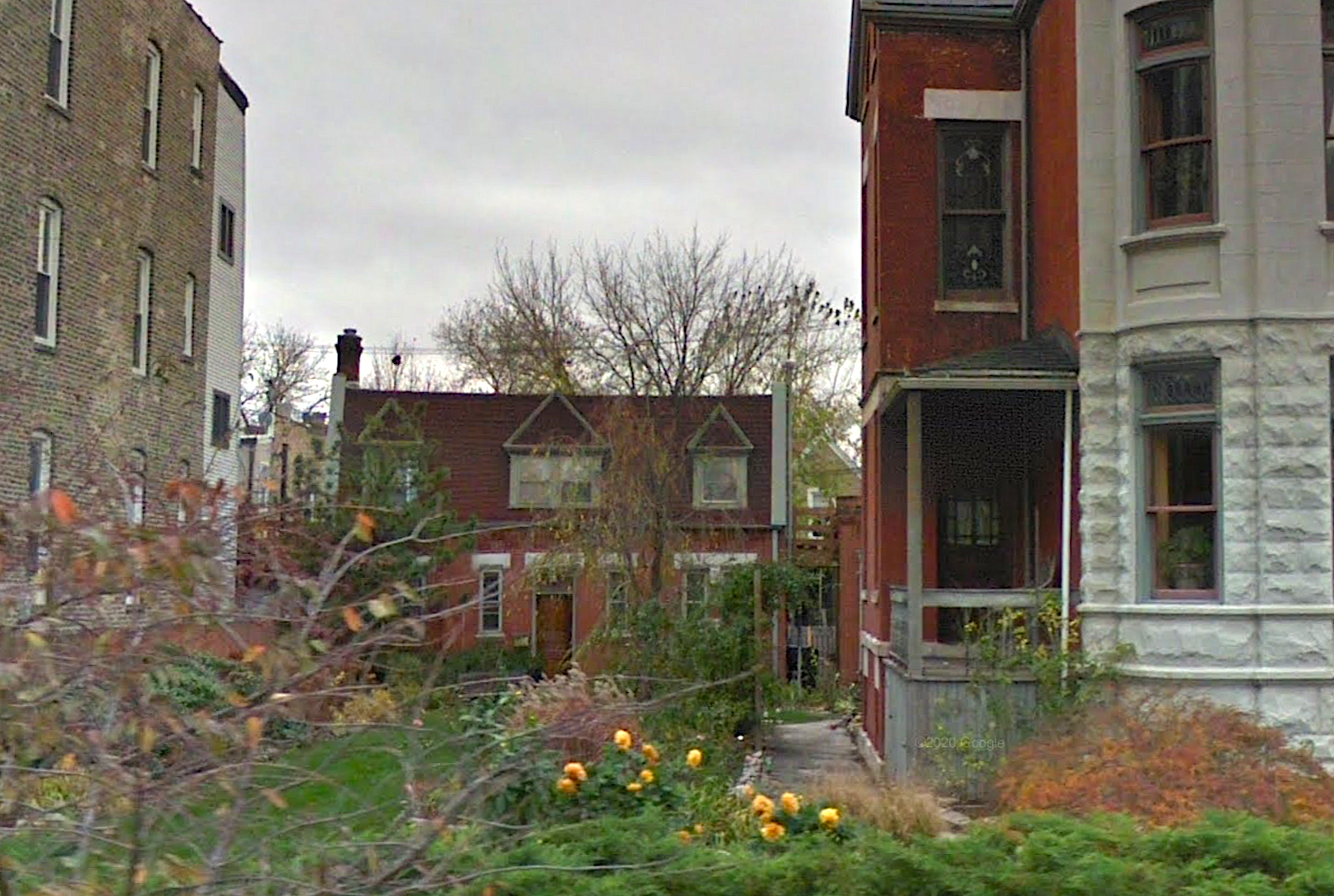Here at Streetsblog Chicago, our job is to report on and advocate for good transportation and development policy. But once in a while Streetsblog staffers are directly involved in making positive change.
Case in point was the part SBC cofounder Steven Vance played in getting Chicago's 63-year ban on new backyard houses and other "accessory dwelling units" eased Wednesday. Steven works full time for a real estate consulting firm nowadays, and also runs the development data website Chicago Buildings, but he still helps us out a few hours a week with editorial decisions and technical issues. I'll discuss his role in passing the new ordinance in a bit.
As reported by the Sun-Times, ADUs, including coach houses, carriage houses, or "granny flats," as well as attic and basement dwellings, were prohibited in 1957, back when it was inaccurately predicted that the postwar population boom would lead to overcrowding in the city, and there was a push towards suburbanization. The new legislation, proposed by Mayor Lori Lightfoot and approved on Tuesday by two City Hall committees, allows for the construction of backyard houses in five designated districts on the Southeast, South, West, Northwest, and North sides. The only aldermen to vote against the measure were Patrick Daley Thompson (11th) and, predictably, notorious Council contrarian Ray "Showpez" Lopez (15th)
The pilot zones designated in the ordinance include:
• Southeast: covering parts of the South Chicago, East Side, South Deering and Hegewisch communities.
• South: covering parts of the Ashburn, Auburn Gresham, West Lawn, Chicago Lawn, Washington Heights, Roseland, Chatham, Greater Grand Crossing, Englewood, West Englewood, Washington Park and Woodlawn communities.
• West: covering parts of the East Garfield Park, West Garfield Park, North Lawndale and South Lawndale communities.
• Northwest: covering parts of the Albany Park, Irving Park, Avondale, Hermosa, Logan Square, West Town, Near West Side, and East Garfield Park communities.
• North: covering parts of the West Ridge, Edgewater, Uptown, Lake View, North Center and Lincoln Square communities.
If apartments are added to an existing building, half of the new units must be designated as affordable housing, the Sun-Times reported. The legislation also proposes establishing a grant program to help low-income homeowners build new apartments. The new housing may not be rented on Airbnb type platforms without city approval. In the Southeast, South, and West districts, there are additional regulations, such as a cap of two ADU permits per block per year.
New attic, basement, and coach house units will be legalized in 5 pilot zones across Chicago, including 80% of the 35th Ward!
Thank you @Marisa_Novara, @DanielKayHertz, and @ChicagoDPD Patrick Murphey for their labor, and @SteveVance for his advocacy.https://t.co/r52V2tElUU
— Ald. Carlos Ramirez-Rosa ✶ (@CDRosa) December 16, 2020
So what was Steven's part in all this? He had an unaffiliated role in advocating for the ordinance. He created maps and data that were used by city staff and other advocates to understand just how widespread backyard houses are. He informed architects and developers about the proposal, which led some of them to contribute "scenario" designs to city staff to help them visualize the building parameters in the ordinance. He was also was a member of the Urban Land Institute Chicago chapter task force to share information and recommend policies to reduce barriers to implementation. Steven also used the Chicago Cityscape platform to promote the re-legalization, answer questions from reporters, and share existing local and national news on the issue, and resources.
While the ordinance that ultimately emerged from the legislative sausage-maker isn't as broad as what Steven and other advocates originally hoped for, he says he's still pleased with the outcome overall. "I've made my reservations about the ordinance clear, that it excludes a lot of the city, the maximum size for a backyard house is quite small, and that a homeowner can't have both an interior unit and a backyard house on the same lot," he said via email. "But re-legalizing ADUs will give households more ways to adjust their houses for multi-generational family living, and create new, lower-cost housing. ADUs are lower-cost in that they're either using existing buildings and utilities (in the case of interior apartments) or quicker construction methods, modern prefabricated materials, and a smaller size (in the case of backyard houses)."
Steven added that he's hoped hopeful that the city will create the recommended grant program to fund renovations and upgrades to bring existing basement dwelling units owned by lower-income homeowners up to code.
So kudos to Steven for his part in this new initiative that will help make the Chicago housing scene more equitable, and interesting.




